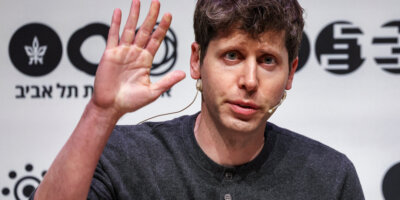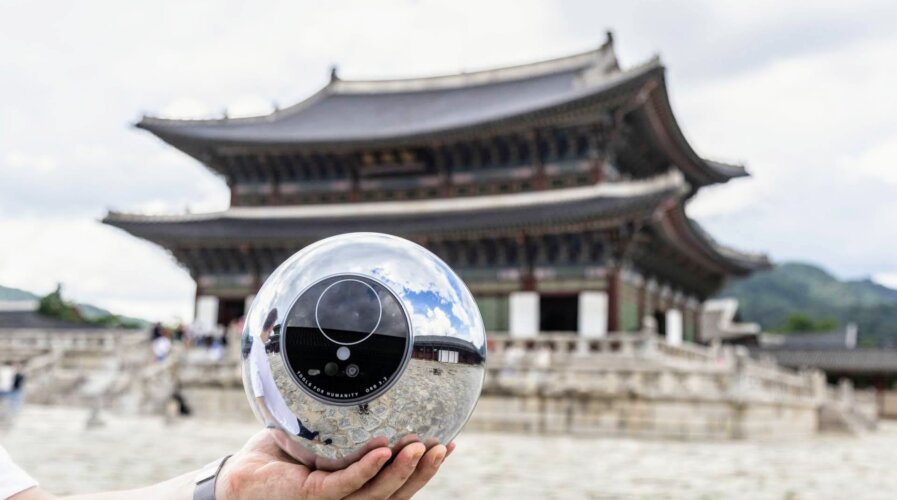
The Orb is currently available in only a handful of cities in Asia. (Image – Twitter)
Everything you need to know about Worldcoin
|
Getting your Trinity Audio player ready... |
After ChatGPT, Worldcoin seems to be the topic of the hour, as everyone is keen to know how much of an impact it will have on society. Developed by Tools for Humanity (TFH), which Sam Altman co-founded, Worldcoin is an iris biometric cryptocurrency project that is hoping to revolutionize authentication.
Worldcoin aims to establish universal access to the global economy by giving ownership to everyone through its iris biometrical identity. Using iris recognition, Worldcoin hopes to solve some of the challenges faced with identity verification.
“Worldcoin consists of a privacy-preserving digital identity (World ID) and, where laws allow, a digital currency (WLD) received simply for being human. We hope that, where the rules are less clear, such as in the US, steps will be taken so more people can benefit from both,” mentioned Altman and Alex Blania, also a co-founder of TFH, in a blog post.
It is also important to note that Worldcoin is a decentralized open-source protocol supported by a global community of developers, economists and technologists committed to expanding participation in, and access to, the global digital economy. It is intended to become a public network, with ownership by everyone.
How does Worldcoin work?
While biometric authentication methods have been around for some time, Worldcoin’s uniqueness is that its verification system is in an adversarial environment which scales to billions of people. Using iris recognition, Worldcoin aims to convert high-resolution infrared images of both the left and right eye into an iris code. The code is a condensed mathematical and abstract representation of the iris’ entropy that can be used for verification of uniqueness at scale.
To verify the iris, TFH designed the Orb, a custom biometric imaging device built for the Worldcoin project to verify humanness and uniqueness in a secure and privacy-preserving way. The Orb contains custom software and hardware, including a custom telephoto lens, that is advancing the state of the art in iris biometric technology.
The Orb is also built with robust security features to prevent spoofing, tampering or hacking. However, a report by TechCrunch indicates that Worldcoin Orb operators have had their personal devices compromised by password-stealing malware recently. A Worldcoin spokesperson told TechCrunch that an internal investigation concluded that no sensitive or personal data was accessed or compromised.
Each Orb is provisioned with a private key. Stored in secure hardware, the key authenticated the Orb and signs important messages. There are also fraud prevention algorithms that run locally on the device and the Orb promptly deletes iris images by default after the creation of the iris code.
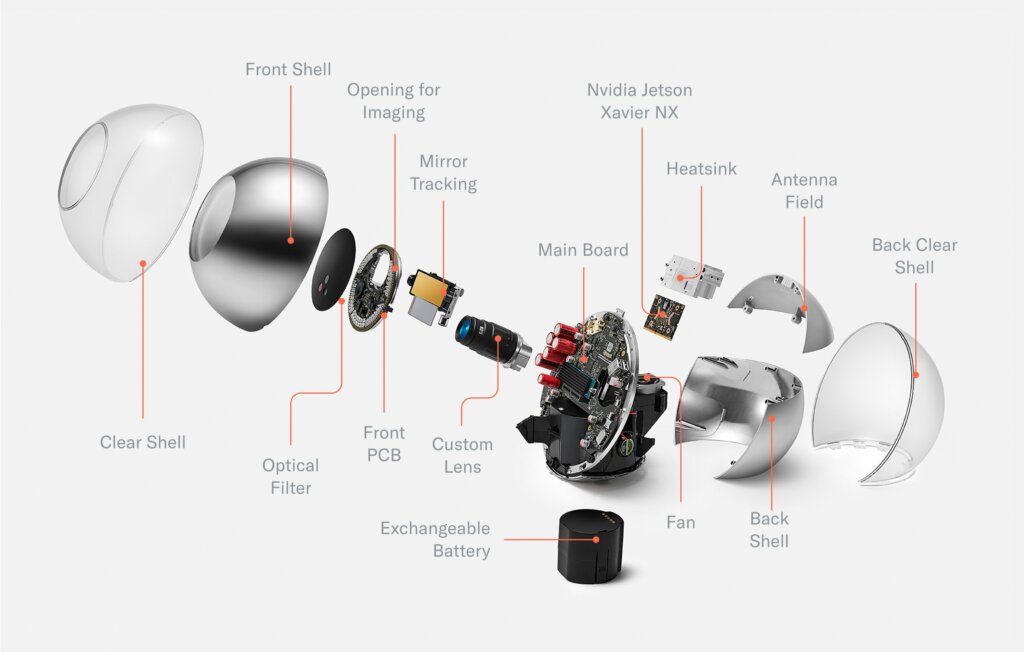
Here’s how the Orb looks like inside. (Image – Worldcoin)
World ID
So what’s the purpose of Worldcoin and the Orb?
According to Altman, the core offering of Worldcoin is the World ID. The World ID is a global identity protocol. Powered by the Worldcoin ecosystem, it uses an AI-safe proof of personhood credential issued by the Orb to enable people to digitally prove their uniqueness and humanness.
Simply put, the World ID is a digital passport to prove its holder is a human and not a bot. Given the Orb’s iris recognition capabilities, the World ID is designed to enable anonymous actions. Users do not need to provide personal information such as names, email addresses, phone numbers, social profiles, and such. These options are optional and no personal data is disclosed by default.
Third parties are not able to know a user’s public key or even track them thanks to World ID’s zero-knowledge proof. Zero-knowledge proof also protects World ID from being tied to any biometric data or the iris code of the user as it uses an open-source protocol known as Semaphore, which confirms that verifications cannot be tracked to a person’s identity or in applications.
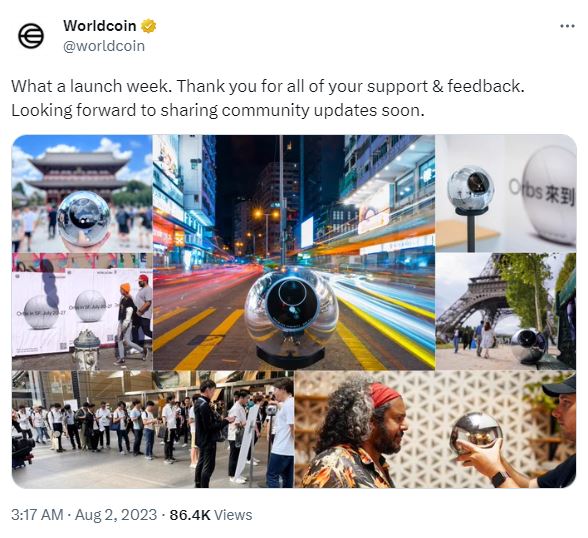
Worldcoin has been a global hit. (Source – Twitter)
Worldcoin use cases
The Worldcoin developer portal has highlighted three main use cases in which it feels Worldcoin would work best. They include:
- Voting – Word ID can be used to build a trustable and truly democratic one-person one vote system. This enables election processes to avoid deduplication, a problem that continues to headline elections all around the world. It can also be used for anonymous online polls platform and snapshot integration as well.
- Social media – One of the biggest problems in social media is the increasing number of AI bots on the platforms that are becoming a nuisance. The World ID enables progressive proof of personhood so that social networks can be enhanced to help solve abuse problems.
- Wealth distribution – As World ID can prove personhood, it can be used to ensure aid from NGOs, government agencies and such are distributed correctly to recipients. This also reduces the risks of scams and can meet Universal Basic Income targets.
Future Worldcoin use cases in development include decentralized finance and fintech, token airdrops, NFTs, customer incentives and marketplaces.
A growing community
Since its launch, the Worldcoin community has grown tremendously. Statistics show that there are more than two million World ID sign-ups globally. There are also 34 countries where Orb verifications have happened and 120 countries with verified World ID users. An average of 40,000 individuals sign up for a verified World ID every week.
For example, In Spain, more than 150 thousand users have verified their World ID and is expected to see more users in the coming months.
Here’s where it gets interesting. Users who sign up for the World ID and verify their uniqueness at an Ord can claim a free Worldcoin token, which is a digital asset, in their Word App. There are no guarantees on the value of the token but it works similarly to the cryptocurrency, which is why there is a huge interest in the tokens as well. Also, Worldcoin tokens are not intended to be available in the US or other restricted territories.
Currently, there are 35 cities in over 20 countries where Orbs will be available for verification. In Asia, the Orbs are only available in Bangalore, Delhi, Ho Chi Minh City, Hong Kong, Manila, Seoul, Singapore and Tokyo.
Another successful project for Sam Altman?
The positive growth of Worldcoin signifies another successful project by Sam Altman. The American technologist, entrepreneur and investor has already made a huge name with ChatGPT, Open AI’s large language model-based chatbot that was launched on November 2022.
In fact, the launch of ChatGPT became the second fastest-growing application after Meta’s recent launch of Threads. ChatGPT practically changed tech conversations businesses made globally and even led to other tech companies developing similar AI capabilities.
Even before ChatGPT, Altman was already a successful entrepreneur in tech. Having dropped out of Stanford University, he founded Loopt, a location-based social networking mobile application in 2005 at the age of 19. He was able to raise more than US$30 million in venture capital for Loopt.
Altman was also involved with Y Combinator, an American startup accelerator that funded companies like Airbnb, Dropbox and Stripe.
In December 2015, Altman formed Open AI with Greg Brockman, Reid Hoffman, Jessica Livingston, Peter Thiel, Elon Musk, Microsoft, AWS, Infosys and YC Research. While Open AI was initially non-profit, it transitioned to capped-for-profit in 2019.
This was followed by the launch of GPT-3 in 2020 and DALL-E, a deep-learning model that can generate digital images from natural language descriptions in 2021. But the biggest success was the launch of ChatGPT, which uses GPT-3.5.
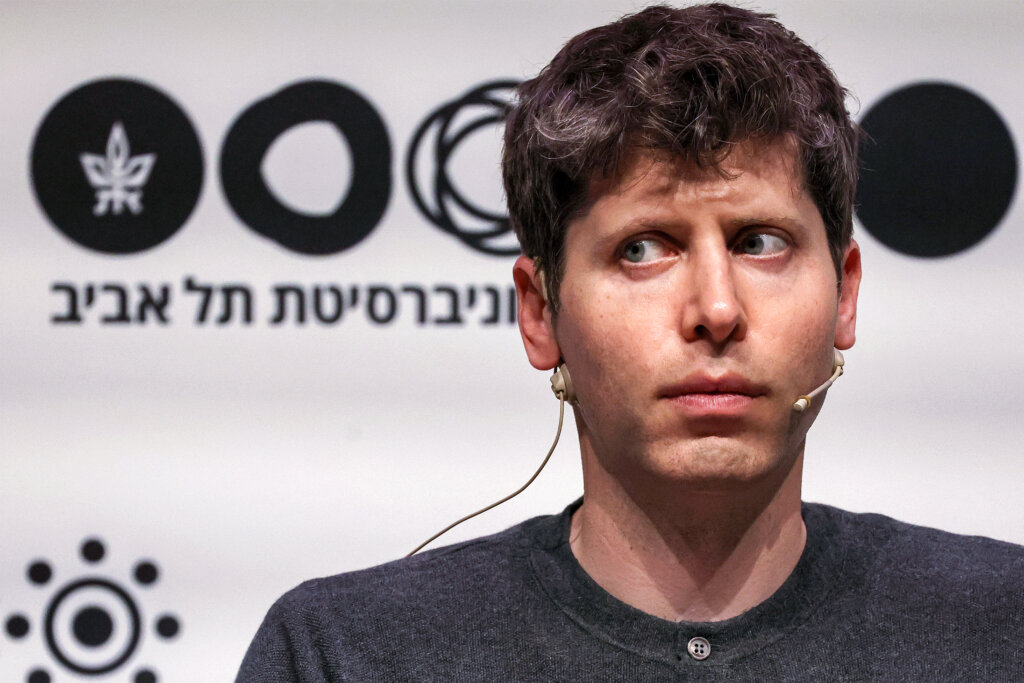
What plans does Sam Altman really have for Worldcoin? (Photo by JACK GUEZ / AFP)
The responsible use of technology
As the saying goes, “with great power, comes great responsibility,” ChatGPT also soon found itself dealing with increased challenges from regulators, especially on how the tool was using AI to source its information. Apart from issues on privacy, there were also concerns that the increased use of AI could let to technology fallout in the future.
Altman himself, who has been vocal on AI applications and use cases, has voiced concern about the importance of having some guidelines for emerging technologies. In May 2023, Altman called on US lawmakers to regulate AI.
Testifying before a US Senate committee, Altman said a new agency should be formed to license AI companies. According to a report by the BBC, he said that AI could be as big as “the printing press” but acknowledged its potential dangers.
“I think if this technology goes wrong, it can go quite wrong…we want to be vocal about that,” Altman said. “We want to work with the government to prevent that from happening.”
Altman has also admitted the impact that AI could have on the economy, including the likelihood that AI technology could replace some jobs, leading to layoffs in certain fields.
Despite his concerns with AI, Altman continues to advocate emerging technologies as well with the Worldcoin being the perfect example. While Worldcoin is not a piece of tech that can take over the world or replace jobs, there are still concerns about how the data is being used, despite the company stating how it ensures privacy.
In an opinion piece in the Financial Times, Tabby Kinder points out three areas of concern with Worldcoin. First, she feels that Worldcoin’s mission is extremely contradictory, especially with the nature of what digital currencies were meant to be – a way to stop governments and corporations from having total control of personal data.
Secondly, Kinder noted that Worldcoin is not available in the US, where uncertainty persists over the treatment of crypto assets as security and regulation is expected to become far stricter in the aftermath of the FTX collapse. Finally, there’s a concern that almost everyone has: unanswered privacy concerns in the project.
With that said it will be interesting to see how Worldcoin eventually turns out in the months to come. For now, it seems that Altman and the folks at TFH are going to ensure its expansion continues to spread globally.
READ MORE
- Safer Automation: How Sophic and Firmus Succeeded in Malaysia with MDEC’s Support
- Privilege granted, not gained: Intelligent authorization for enhanced infrastructure productivity
- Low-Code produces the Proof-of-Possibilities
- New Wearables Enable Staff to Work Faster and Safer
- Experts weigh in on Oracle’s departure from adland

